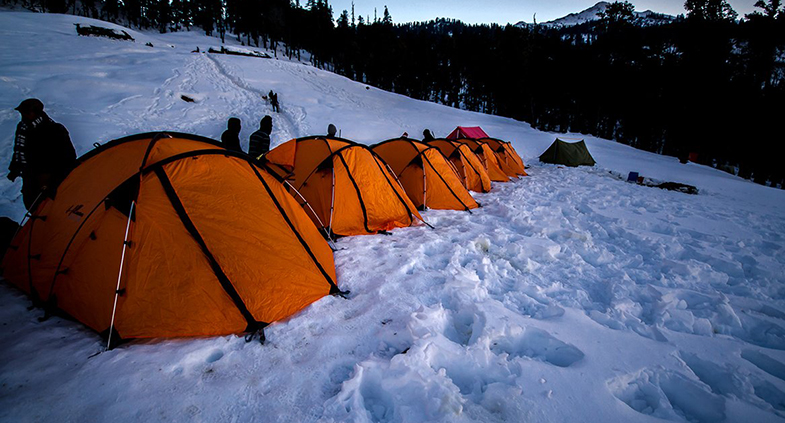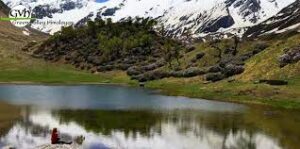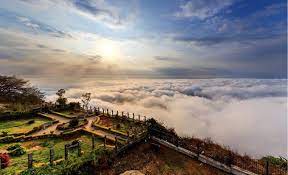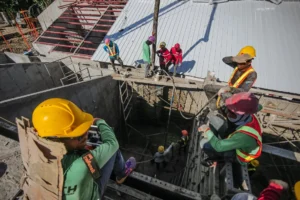
Camping at Kedarkantha Banbanjara
Introduction
One of the holiest places in Hindu mythology, the Kedarkantha trek is situated there. At the base of the top is the Lord Kedarkantha (Shivji) Temple, which has stood the test of time and is adored by spiritual followers. Every year, hundreds of pilgrims travel tens of thousands of kilometers to make their prayers known and ask for the Hindu Deity’s blessings.
A trek that takes place in the Himalayas is called the Kedarkantha Trek.
One of those hikes that allow for summit access even in the dead of winter. The four-day introductory journey takes you to the snow-covered paths in Uttarakhand and the frozen Juda ka Talab. The breathtaking sunrise appears to be heaven from the top of the 12,500-foot Kedarkantha. Pangarchulla, Har Ki Dun, and other mountains are seen from the summit.
Due to the desire to connect with your greater purpose and the conviction in faith, even if you are not Hindu, you could feel the presence of faith all around you. It aids in setting the tone for your ascent.
Your shared adventure is set against a gorgeous backdrop of the forested floors of the massive mountain summits, with Pine Tree meadows and perhaps even snow caressing the heights.
You’ll also be rewarded with stunning panoramic views of prominent mountain summits all around, as well as the glacier-fed river Tons, shortly after leaving the base camp.
What time of year is best for a hike to Kedarkantha?
Although the Kedarkantha walk may be completed at any time of the year, it is recommended that it be done from January to March when the route is covered in snow and offers some breathtaking vistas of landscapes covered in snow.
You’ll also be rewarded with stunning panoramic views of prominent mountain summits all around, as well as the glacier-fed river Tons, shortly after leaving the base camp.
Near Delhi, it is one of those treks in India Guest posting sites where snowfall occurs frequently in the winter. Additionally, the trip features some of the most stunning campgrounds. Because of this, be sure to pack your camping supplies and get ready for this adventure’s overnight camping in the woods.
Weather:
During the summer months of April to June, the temperature varies from 3° to 8°C during the day and -5° to -1°C at night. The post-monsoon season, from September to December, has daytime highs of -4°C to 6°C and nighttime lows of -8°C to -15°C. From January through April, the temperature varies from -6°C to 2°C during the day and -10°C to -18°C at night.
DAY 0 – Starting Out
Take a bus from Delhi to Dehradun throughout the night, and arrive as early as you can the following day. Although you can opt to spend some time in Dehradun, it is preferable to move quickly because Sankri has so much to offer. If you can, arrive before sunrise (taking into consideration your pit stops and leisure time in between). In Mussoorie, you must take a stop for lunch or a snack. The views are lush and breathtakingly gorgeous.
DAY 1: Entry into Sankri
Take the first bus or the approximately ten-hour drive to Sankri. If the first bus is full, you can take the next one to Purola or Mori, where you can then take shared taxis to Sankri. The road that ascends to Kedarkantha is this one. You’ll first be put to the test by having to climb several bridges in a heavily forested area.
Day 2: Juda ka Talab to Sankri
The first campsite is Juda ka Talab, which is located around 4 kilometers from Sankri. The stroll starts on the neighborhood Sankri road, proceeds through the Sor expansion, and then enters the nearby trails. The road that ascends to Kedarkantha is this one. You’ll first be put to the test by having to climb several bridges in a heavily forested area.
Day 3: Summit Talab to Kedarkantha Base Camp.
Depending on your fitness level and experience level, the four-kilometer climb to Kedarkantha base camp takes between three and five hours. Before entering the open highlands, the trail passes through pine and oak trees towards its beginning. The trail is spacious and well-lit, making it perfect for taking in the scenery and daydreaming.
Day 4: Summit of Kedarkantha and return to Hargaon Campground
Therefore, today is the day; let’s all scale the mountaintops! Before returning to the Hargaon Campsite at 8900 feet, you will ascend today from 11250 feet to 12500 feet. It will be a long day today because you have to get to the peak and then return to the Hargaon camping, so you must start your day EARLY (some could argue that it is not even the next day). However, that’s the life of a tourist; the next day begins as soon as you get out of bed. It should take 7-8 hours to complete the 6-kilometer route.
Day 5: Hargaon to Sankri Sankri is 6 kilometers away from the Hargaon campsite, although it doesn’t take long because it’s primarily downhill.
There are some stunning vistas of the Har khi Dun valley between Hargaon and Sankri. If you’ve reserved a cab, you can head to Dehradun right away if you get in Sankri by midnight. You can stay another night and take the bus to Dehradun the next morning if you prefer public transit. Two direct buses from Sankri depart at 5 a.m. and 7 a.m., taking 10 hours total.
Conclusion:
A wonderful experience is reaching the Kedarkantha Trek’s conclusion. I sincerely hope the information above helps you in your vacation planning to Kedarkantha. Enjoy your trek and be careful.








